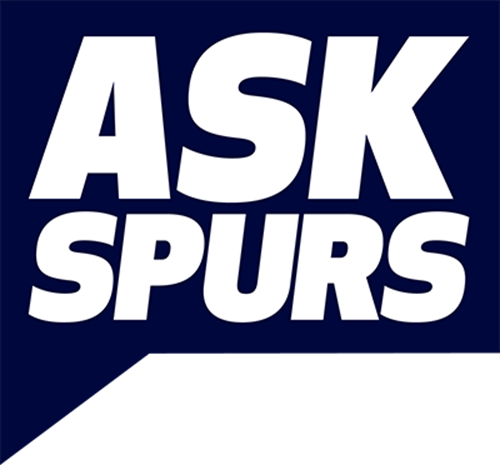140 years of Spurs

5 September, 1882...
Legend has it that members of Hotspur Cricket Club, boys from Tottenham Grammar School and St John’s Middle Class, moved a motion to form a football club, also to be called Hotspur, in a meeting held under a gas lamp on the High Road, Tottenham, little more than a goal-kick away from the current stadium, back in 1882.
The first 6d (2.5p) subscriptions were collected on Tuesday, 5 September 1882 - ever since accepted as the date of the Club's formation. Those funds went to buy just one match ball, timber for goalposts, sawn to size and painted blue and white by the father of the Casey brothers, Hamilton and Lindsay, plus flags and tape in lieu of the crossbar, which was yet to be introduced to the game.
What would our founding fathers think today, 140 years on, stood in the same spot on the High Road, in front of the towering presence of our world-class stadium? Surely a feeling of pride, as the club born out of that meeting is now known all over the world.
Here's to another 140 years!
Bobby Buckle
Founding member, player, captain, secretary - 1882-1900
Bobby Buckle is one of the key figures in the Club's history. One of the boys who founded the Club in that infamous meeting under a gaslight on the High Road in 1882, Buckle was the Club's first captain, first known goalscorer (in a 3-1 loss against Grange Park on 20 October, 1883) and played in our first-ever competitive match in the London Association Cup on his 17th birthday - 17 October, 1885 - a 5-2 win against St Albans. Yet it's off the pitch where Buckle's influence cannot be underestimated. Alongside Hamilton Casey, Jack Jull and Frank Hatton, Buckle urged the Club to move to a ground of their own and helped spearhead the switch from our first home on Tottenham Marshes to Northumberland Park in 1888. He was only 21 when he took the position of honorary secretary in 1889, the first of four stints in that role. On 16 December, 1895, he proposed that the Club should turn professional, a motion carried and in 1898, he was a director when the Club became a limited company. Buckle then played a huge role in the Club moving to the site that would become known worldwide as White Hart Lane - the site in N17 that remains home for our new stadium. The first official match on this site was on 4 September, 1899 against Notts County in front of 5,000 spectators. A little over 10 years later, having won the FA Cup (1901), secured Football League status (1908/09) and promotion at the first attempt, the same site housed a stadium capacity of 50,000 for our opening Division One fixture against Manchester United on 11 September, 1909.
Our Club was born...


First competitive match - 1885
Our first competitive match versus St. Albans in the London Association Cup. Spurs won 5-2. Colours changed to light blue and white halves. First credit balance - nine shillings. This is the first known team photo, dating back to 1885.

White Hart Lane - 1899
The Club moved to a new site, originally a market garden. Accommodation for 35,000. Ground almost named 'Gilpin Park' but instead gradually became known as 'White Hart Lane'. First match staged was a friendly versus Notts County - gross receipts £115.

FA Cup glory -
1901
After winning the Southern League in 1900, one of the Club's biggest, arguably the biggest, achievement in lifting the FA Cup after a final replay against Sheffield United in 1901, becoming the only non-league club, following the formation of the Football League in 1888, ever to achieve this honour, a record that stands to this day.

Entry into the Football League -
1908
We secured entry into the Football League, Second Division for the 1908/09 season and celebrated in style - promotion to to the First Division at the first attempt. Vivian Woodward (pictured) was the star of the show and top scorer with 18 goals as we finished second, just a point behind champions Bolton.

First season in Division One -
1909
Our first match in English football's top flight was a 3-1 loss at Sunderland on 1 September, 1909. Our first match at home in the division followed on 11 September at the Lane against United, a 2-2 draw. We finished 15th in that first season, Billy Minter leading the way with 15 league goals.
Walter Tull
Trailblazer, inspiration, hero -
1909-1911
On 1 September, 1909, history was made. Walter Tull, then 21, stepped out in our first ever match in England’s top-flight, a 3-1 loss at Sunderland - in doing so, he became the nation’s first black professional outfield player. He would only play 10 times for us, but his inspirational story goes beyond football. On the outbreak of World War One in 1914, Walter, then at Northampton Town, joined the 17th (1st Football) Battalion of the Middlesex Regiment, later fought at the infamous Battle of the Somme in 1916 and was then commissioned as second lieutenant - contrary to regulations, he had become the first British-born black combat officer in the British Army. Killed in battle in 1918, Walter was posthumously awarded the British War and Victory Medal.


FA Cup glory again - 1921
Our second FA Cup triumph as we beat Wolves 1-0 in the final at Stamford Bridge. Legendary forward Jimmy Dimmock, who made 438 appearances for us between 1919-31, scored the winner. Our photo shows King George V presenting the trophy to captain. Arthur Grimsdell.

East Stand opens - 1934
A notable moment for the Club off the pitch as our new East Stand was officially opened for the visit of Aston Villa on September 22 - 5,100 seats and 18,700 terrace spaces increased the capacity to nearly 80,000. Our photo shows work in progress in 1932.

Record attendance - 1938
Pictured above, a crowd of 75,038 watched our FA Cup quarter-final against Sunderland on 5 March, 1938. That would remain our record attendance at White Hart Lane.
Bill Nicholson
'Mr Tottenham' - player, manager, chief scout, Club President -
1938-2004
Bill Nicholson’s contribution to the history of Tottenham Hotspur may never be surpassed.
Arriving as a teenage member of the groundstaff in 1936, he served as player, coach, assistant manager and manager over the next 38 years. Of the 17 major honours won in the Club's history, Bill was involved in nine - one as a player and eight as manager. Leaving his role as manager in 1974, he returned in 1976 to add a further 21 years to his tally, this time working behind the scenes to help unearth future talent for the Club. ‘Mr Tottenham Hotspur’ continued to live in the same modest house a goal-kick away from White Hart Lane until 2003 and attended most home games up to the early months of 2004. He sadly passed away in October, 2004.
Gone, but never forgotten.
Born at Scarborough on January 26, 1919, Bill first came down to Spurs for a trial in 1936, eventually signing professional forms in August, 1938. During the Second World Cup, Bill served the Durham Light Infantry, rising to the rank of sergeant. By 1948, he was a regular, and missed just four games in Arthur Rowe's famous 'push and run' back to back titles - the Second Division title in 1949/50 followed by our first First Division championship in 1950/51. He went on to play 314 times for us, earning one England cap, scoring within 30 seconds against Portugal in May, 1951.
Bill's lasting legacy would come as manager. Taking over from Jimmy Anderson in 1958 - and winning his first game 10-4 against Everton - Bill built a team seen by many as one of the best ever in British football. Led by Danny Blanchflower, with the heart of Dave Mackay, skill of John White and goals from all angles from the likes of Cliff Jones, Bobby Smith, Les Allen and Terry Medwin, we won our first 11 matches of 1960/61 - still a record - on the way to clinching the 'double' of First Division and FA Cup, the first team to do so in the 20th century. We retained the FA Cup in 1962, created more history in 1963 by becoming the first team to win a European trophy and more trophies followed as Bill put together another great team going into the 1970s - the FA Cup in 1967, the first-ever UEFA Cup in 1972 with League Cups either side in 1971 and 1973.
On 29 August, 1974 Bill announced his retirement as manager. He returned to serve us as a consultant and chief scout in July, 1976. His connection with our scouting department continued until his retirement in July, 1997. During July, 1991 he was appointed Club President and was the first inductee into the Tottenham Hotspur Hall of Fame in March, 2004. Bill Nicholson passed away at a Potters Bar Hospital on 23 October, 2004, aged 85.




'Push and run' -
1949/50
Arthur Rowe took over as manager in May, 1949, and 'push and run' was born. We took the Second Division by storm in 1949/50. One defeat in our first 25 games, including 19 wins, saw the team champions, finishing nine points ahead of Sheffield Wednesday. That run included a 7-0 home win against Sheffield United, who would finish third. The title was secured with seven games still remaining and Spurs scored 85 goals while conceding just 35. Les Medley led the way with 18 league goals as four players ended with double-figures. The only question now - could we take 'push and run' into the top flight?

First Division champions -
1950/51
Back in the First Division, Arthur Rowe's team proceeded to steamroller their opponents with this new, pioneering, brisk, concise style of play. By 30 December, 1950, Spurs were top of the league and on 3 March began
an eight-game unbeaten run. After a 1-0 home win against Sheffield Wednesday in their penultimate game on 28 April, 1951, they were confirmed as champions, beating Manchester United by four points. It was our first First Division championship, delivered in style. Sonny Walters top scorer in the league with 15 as, again, four players hit double-figures.
Arthur Rowe
Player, manager, pioneer -
1928-1955
True visionaries in British football come along once in a blue moon, but Arthur Rowe, the tactical genius who devised Tottenham Hotspur’s famous ‘push-and-run’ strategy in the post-War years, was worthy of the accolade. The beauty of Rowe’s tactical masterplan was its simplicity, as he asked his players to imagine they were using their team-mates like a kerb or a wall, playing one-twos and taking the return pass. He had a famous motto, 'make it simple, make it quick'. Born in Tottenham in 1906, Rowe made 201 appearances for the Club, 1929-39.
After a successful first spell in management at Chelmsford City, Rowe was appointed manager in May, 1949. He had an immediate impact, as 'push and run' took the Second Division by storm, as his team won 19 of their first 25 matches, losing just one, to eventually clinch the title with seven games remaining, scoring 81 goals in 42 games. This form continued in Division One in 1950/51 as we clinched our first First Division championship by four points from Manchester United, this time scoring 82 goals. Rowe’s philosophy had changed the outlook of English football and, after presenting the team with the trophy, Arthur Drewry, chairman of the Football League, said: “I not only congratulate Spurs on having won it, but also on the manner in which they did so.” We were runners-up in 1951/52 and Rowe eventually left his managerial roll in 1955. A certain Bill Nicholson (not forgetting Sir Alf Ramsey) was in Rowe's team, and would take over as manager in 1958.



The double -
1960/61
Our greatest-ever team, built by Bill Nicholson, led by Danny Blanchflower, swept all before them to land an historic double of First Division title and FA Cup in 1960/61, all done in the style now associated with Spurs. Bill's men won their first 11 matches - a record that still stands - and scored an incredible 115 goals on their way to the championship, spearheaded by Bobby Smith (28 league goals) and Les Allen (23). The double was secured against Leicester City at Wembley on 6 May, 1961, as this group of players achieved a feat many thought impossible. They will be remembered forever.

FA Cup retained
- 1961/62
With all-time goalscoring great Jimmy Greaves now on board - famously signed for £99,999 in December, 1961 - we finished a close third in the First Division and went all the way to the semi-finals in our inaugural season in the European Cup (now Champions League), only to controversially lose out to eventual winners, Benfica. However, silverware was on its way back to the Lane as we retained the FA Cup in one of the great finals of its day, a 3-1 win against our close rivals Burnley - Greavsie naturally on target.
Danny Blanchflower
Leader, captain in the 'glory, glory years' - 1954-64
One of the most famous figures in the Club's history, captain of the 'double' team and throughout the 'glory, glory' years of the early 1960s, Danny Blanchflower made sure Bill Nicholson's tactics were delivered on the pitch. A great player and reader of the game, so graceful on the ball, Danny was an inspiration to all those around him. Signed from Villa in 1954, there were ups and downs in his early days, but the arrival of Billy Nic as manager in 1958 transformed both Danny and the Club's fortunes. Bill reinstated Danny as skipper, we finished third in 1959/60 and, as predicted by Danny himself ahead of the season, clinched that famous double in 1960/61. We retained the FA Cup in 1962 and then more history with Britain's first European victory, as we claimed the Cup Winnners' Cup in 1963 - all trophies lifted by the man from Belfast. Footballer of the Year in 1958, Danny would eventually retire aged 38, having made 382 appearances for us. He passed away in 1993, but his famous words will live on forever, 'the game is about glory...'


History in Europe
- 1963
In May, 1963, we made history again - this time becoming the first British team to win a European trophy. So close in our first campaign in the European Cup in 1961/62, where we lost in the semi-final, this time we made no mistake, blowing away final opponents Atletico Madrid 5-1 in Rotterdam. Jimmy Greaves and Terry Dyson both scored twice with John White also on target on what many believe to be one of the best displays of Bill Nicholson's 16 years as manager.

The first all-London FA Cup - 1967
We'd finished fourth, sixth and eighth in the seasons leading up to 1966/67, so after a couple of relatively quiet campaigns following the success of the early 1960s, here was our latest chance of glory. We took on Chelsea in the first-ever all London FA Cup Final at Wembley and ran out 2-1 winners to lift the trophy for the fifth time thanks to goals from Jimmy Robertson and Frank Saul.
Jimmy Greaves
Our all-time leading goalscorer - 1961-70
Arguably the greatest striker ever to grace the game, ‘Greavsie’ set countless records during an incredible playing career, many of which still stand to this day. Collecting two FA Cups and the European Cup Winners’ Cup during his nine years with us between 1961 and 1970, Jimmy’s haul of 266 goals in 379 competitive appearances in our colours remains a Club best. League records also tumbled during his career - nobody has ever scored more top-flight goals (357) or top-scored in Division One in more seasons (six) than our former striker, who began his career at Chelsea before joining us via a brief spell at AC Milan for a famous £99,999 fee in December, 1961. He left Spurs in March, 1970, to join West Ham United, before retiring at the end of the 1970/71 season at the age of 31. In October, 1972, a crowd of 45,799 gathered at White Hart Lane to pay tribute to Jimmy in his Testimonial match against Feyenoord.
He was awarded an MBE in the Queen’s New Year Honours list at the end of 2020. Jimmy sadly passed away in 2021.


Our first League Cup - 1971
Martin Chivers struck twice in the final as we toppled Aston Villa 2-0 at Wembley to lift the League Cup - introduced in 1960/61 - for the first time in our history.

History again in Europe - 1972
We beat Wolves over two legs to win the inaugural UEFA Cup in May, 1972. Martin Chivers fired us to a 2-1 advantage with both goals in the first leg, Alan Mullery then headed home as we drew the second leg 1-1 at the Lane to take the trophy. By doing so, we became the first British team to win two European trophies. It was Mullery's last game for Spurs - what a way to go!

Ralph's day at Wembley - 1973
Wembley again in 1973, and this time one of those cup final stories you hear about from your elders. Ralph Coates was named on the bench for the final but John Pratt got injured, Ralph came on and struck the winner against Norwich City, a beauty from 25 yards.
Steve Perryman
Captain, leader, all-time appearances - 1969-86
Where to start with Stevie P? The most loyal, most decorated and one of the most respected figures in the history of Tottenham Hotspur.
The start was actually 1967, when, as an England schoolboy international, he signed apprentice forms for Spurs with a host of clubs also interested. A letter from Bill Nicholson sits proudly on Steve’s wall at home, to this day. In it, Bill writes ‘we shall never have been more pleased to welcome any boy to our club’. A little over two years later, Steve made his debut against Sunderland, 27 September, 1969, and didn’t look back for the next 17 years. Consistency was key for Steve, and took him to those 854 appearances, initially a bustling, ball-winning box-to-box midfielder, full of energy, later a right-back with great positional strength and the ability to read the game.
As a younger player, Steve’s job was to ‘keep it simple, keep it quick’, as Bill Nicholson drilled into him in his early days. Only 19 when he won his first trophy - the 1971 League Cup - he played in every final as we won the UEFA Cup over two legs against Wolves in 1972 and then the League Cup again in 1973. Steve’s golden moment came with both goals in the UEFA Cup semi-final, first leg against AC Milan at the Lane in 1972. Above all though, Steve was a leader. Appointed captain in 1975, he led the team back into the First Division for the 1978/79 season after suffering dreaded drop in 1977/78 and with Keith Burkinshaw in charge, Glenn Hoddle and a number of youth graduates blossoming, pkus the arrival of the likes of Ossie Ardiles and Ricky Villa, Steve helped bring back the glory days with back-to-back FA Cup wins in 1981 and 1982 and the UEFA Cup triumph of 1984.
Steve eventually moved to Oxford in a player-coaching role in 1986, then had spells at Brentford and Watford before returning to Spurs as Ossie Ardiles’ assistant in 1993. He later hooked up with Ossie again for a successful spell in Japan’s J-League. In 2003, Steve joined Exeter City as Director of Football, and embarked on another long-term stint at a club that would last until his retirement in 2018. Highlights included drawing against Manchester United in the FA Cup before losing in a replay at St James Park in 2005.




Relegation - 1976/77
After a couple of tough years at the wrong end of the table - relegation famously avoided in 1975 via a 4-2 win against champions Leeds on the final day - we suffered the dreaded drop in 1977. Our photo shows a rare highlight as Ralph Coates hits the winner against Liverpool in February.

Promotion - 1977/78
Thankfully, we bounced straight back to the top flight with promotion at the first attempt in 1977/78. We finished third in a season that included a 9-0 win against Bristol Rovers, but we had to wait until the final day and a 0-0 draw at Southampton to secure promotion - our photo shows Keith Burkinshaw in the dressing room that day at The Dell.

Ossie and Ricky - 1978
'Spurs Scoop the World' said the newspaper headlines - Keith Burkinshaw's swoop for two of Argentina's 1978 World Cup winners is not only one of the most iconic transfer deals of all-time, but signalled a new dawn at the Club after relegation. Within three years, 'Ossie's dream' of winning the FA Cup was reality, and we were back we we belonged...
Keith Burkinshaw
Manager, 1976-1984
Born at Higham, Barnsley on 23 June, 1935, Keith Burkinshaw played for Liverpool, Workington and Scunthorpe United before joining Newcastle United's coaching staff in 1968. Keith arrived at Tottenham during June, 1975 as first team coach, working alongside manager Terry Neill and assistant manager Wilf Dixon. A year later, he took over as manager. His first season saw us relegated from the old First Division but we bounced back at the first attempt, notching our best ever win in Division Two - 9-0 against Bristol Rovers - a result that proved crucial in edging out Brighton for the third promotion place.
The dual signing of Ossie Ardiles and Ricky Villa soon after the 1978 World Cup gave the club a new lease of life. The Centenary FA Cup Final was famously won in 1981 and 12 months later, Keith became the first manager to lead his side to two major cup finals at Wembley in the same season - the League Cup and FA Cup. Another record was created by reaching the League Cup Final without conceding a goal. Our only reward for a season where we went so close on four fronts was retaining the FA Cup in May, 1982. A new club record of 18 FA Cup matches undefeated was created between January, 1981 and January, 1983. On 2 April, 1984 Keith announced his resignation with effect from 31 May. And he would go out in style - his final match in charge saw the UEFA Cup Final won at White Hart Lane in a dramatic penalty shoot-out against Anderlecht, after the two-legged final was level at 2-2.



Ossie's dream - 1981
There are so many stories attached to our FA Cup triumph in 1981 - 'Ossie's Dream', as the popular midfielder dreamt of this day at Wembley - but it was his fellow Argentine Ricky Villa who would grab the headlines. Subbed off in the initial final, a 1-1 draw, Villa was distraught. He returned five days later the hero, scoring twice, including the solo winner, later voted Wembley's best goal of the 20th century.

FA Cup retained - 1982
What a season 1981/82 nearly was... fighting on all four fronts, we finished fourth in the league, reached the semi-finals of the Cup Winners' Cup - beaten by Barcelona - the final of the League Cup - beaten by Liverpool - and then the final of the FA Cup. Our last game of a 66-game season (including the Charity Shield) ended with an FA Cup replay victory over QPR, Glenn Hoddle's replay proving enough.

UEFA Cup drama at the Lane - 1984
Leading up to the Lane's Finale in May, 2017, this game was voted by many as their favourite of all-time at our famous old stadium - the second leg of the 1984 UEFA Cup Final. We'd picked up a draw in the first leg in Belgium, but skipper Steve Perryman was suspended, Glenn Hoddle and Ray Clemence injured, and Ossie Ardiles only fit enough for the bench. Skipper Graham Roberts proved the inspiration, equalising on the night, then scoring the first penalty of the shoot-out. Danny Thomas had the chance to win it, but missed, only for Tony Parks to keep out Arnur Gudjohnsen's kick to clinch the trophy.
Glenn Hoddle
The maestro - player 1975-1987; manager - 2001-2003
One of the most gifted players of his generation, voted many times over the years as our greatest-ever player, Glenn Hoddle lit up Spurs for 12 years with his sublime skills, unequalled passing ability, eye for a goal and that knack of being able to turn a game with a moment of magic. Fans of a certain vintage will be able to reel off any number of goals - volleys against Forest and United, that chip at Watford, a 35-yard humdinger into the top corner at the Kop end at Anfield or his final goal at the Lane in 1987, a run from inside his own half against Oxford, to name but a few.
Born in Hayes, Middlesex, Glenn signed as an apprentice on the recommendation of another great, Martin Chivers, in 1974. He signed as a professional in 1975, made his debut aged 17 last that year and marked his first start in the Football League with what would be a trademark long-range shot against Peter Shilton, no less, at Stoke in February 1976. Glenn would become the fulcrum in midfield of the great Spurs team of the early 1980s, led by Steve Perryman, under the management of Keith Burkinshaw, that won the FA Cup in 1981, retained it in 1982 - Glenn scored the winner in the replay against QPR - and then the UEFA Cup in 1984, although injury ruled him out of the European final. He also appeared in the 1987 FA Cup and 1982 League Cup Finals. He moved on to AS Monaco in 1987 and won the French title in 1987/88.
Glenn was capped 53 times by England, scoring on his debut against Bulgaria in 1979. He played at the 1982 and 1986 World Cups. On his return from France, Glenn moved into management, initially player-manager at Swindon Town in 1991, then Chelsea in 1993 and then the top job at England in 1996, taking the Three Lions to the 1998 World Cup, where they lost out on penalties to Argentina. After leaving the England job in 1999, Glenn was back in management at Southampton in 2000 before returning 'home' to manage Spurs 2001-2003. He later had a short spell at Wolves in 2006 before moving into a media career as a pundit for the likes of ITV and BT Sport. Now 64, Glenn suffered a cardiac arrest in October, 2018, but recovered to take his place as part of the BT Sport presenting team for the Champions League semi-final win at Ajax in May, 2019, and the the final in June, 2019. He told us that May: "It might have been something I’d missed. To think of that... it hit me in the studio (at Ajax). In the cold light of day, I thought ‘this was worth staying alive for!’"




Gazza and the FA Cup
- 1991
We lifted the FA Cup for the eighth time in 1991 - but for many fans, the semi-final victory meant just as much. Not surprisingly, that win was against Arsenal in the first FA Cup semi-final to be held at Wembley in 1991 as Paul Gascoigne, one of the most gifted players to wear a Spurs shirt, tore the Gunners apart in a 3-1 win. The final against Forest looked to be going against us. Gazza was famously injured, Gary Lineker had a penalty saved and Forest were 1-0 up at half-time. Paul Stewart levelled and Des Walker headed into his own net in extra time as we secured the trophy again.

Founder members of the Premier League - 1992
English football's new dawn arrived in 1992, and we were one of the founding members of the all-new Premier League, or FA Carling Premiership, as it was known at the time. Our start was less than auspicious, shall we say, as we opened with a goalless draw against Southampton at The Dell. We went on to finish eighth in that first season, 1992/93. Pictured above, Justin Edinburgh challenges Palace's Geoff Thomas in August, 1992.

Our third triumph in the League Cup - 1999
As the new Millennium was set to dawn, we claimed our third League Cup of the century with a late, late winner at Wembley. Facing Leicester City in the March, 1999, showpiece in the iconic old stadium, Allan Nielsen was the hero that day, guiding home with a diving header in injury time after a cagey affair with the Foxes. And that win was achieved despite us having being reduced to 10 men at the national stadium on 63 minutes as Justin Edinburgh was dismissed.
Gary Mabbutt
Inspirational skipper - 1982-1998
A model professional in the modern era, Gary Mabbutt played 611 games for Spurs in 16 years, placing him second only to the great Steve Perryman in our all-time appearance list and captained the team to FA Cup glory in 1991.Numbers alone don't tell the whole story though. Gary battled throughout his career against the affects of diabetes and managed to overcome a serious facial injury in 1993 and a broken leg that ruled him out of the 1996-97 season.Signed for £105,000 from Bristol Rovers in August 1982 on the recommendation of Bill Nicholson, ‘Mabbsy’ showed his versatility by starting his Spurs career in midfield before finally settling in at centre-half.
Gary soon tasted glory in the 1984 UEFA Cup triumph before forming one of the best central defensive partnerships seen at the Lane with Richard Gough in the 1986-87 season which saw us finish third in the league, reach the semi-finals of the League Cup and, unfortunately for him, see his own goal help Coventry City to victory on the 1987 FA Cup Final. Now captain, Gary fulfilled every schoolboy’s dream when he led the team out at Wembley for the 1991 FA Cup Final and collected the trophy from Princess Diana following the 2-1 win against Forest. Capped 16 times by England, including key Euro 1992 qualifiers against Turkey and Poland, Gary recovered from the serious facial injury and broken leg to continue until the end of the 1997-98 campaign, when he left the club and soon announced his retirement. Awarded the MBE in 1994, Gary is as popular as ever in his role as Club Ambassador as well as being an Ambassador for the Prince's Trust and Patron of Diabetes UK. He was also an Ambassador for the successful South Africa 2010 World Cup bid.



League Cup landed
- 2008
There were echoes of 1991 as we lifted the League Cup at Wembley in 2008. First up, we dominated against Arsenal in the semi-final, following up a 1-1 draw at the Emirates with a 5-1 crushing at the Lane. Then, like in 1991, the final was going against us as Chelsea, so strong at the time, took the lead against the run of play. We hit back in the second half, levelled via one of the calmest final penalties ever seen from Dimitar Berbatov and won in extra time when Jonathan Woodgate, in only his third appearance for us, headed home from Jermaine Jenas' free-kick.

Champions League, here we come - 2010
With Harry Redknapp now in charge, we'd recovered from a tough 2008/09 campaign (two points from our first eight games) to finish a respectable eighth. And with the likes of Ledley King, Luka Modric, Gareth Bale, Jermain Defoe and Peter Crouch on board, we were primed to challenge for top four. It looked a big ask in April, when we were faced with huge derbies against Chelsea and Arsenal in the space of a week, but we won both and then went to City knowing victory would secure top four. We dominated, and won it late thanks to Crouchy's header. What a night!
Ledley King
The King - 1999-2012
One of the greatest-ever defenders to pull on the famous white jersey, Ledley led us for seven years with composure, tenacity and heart. He knew what it meant to play for Spurs. It's his Club, his one and only Club. Coming through the ranks of our youth system, the centre-back’s talent shone. His ability to read the game was remarkable at such a young age, his focus intense, developing his understanding and instinctive positioning and timing. It’s been said many times, but barring injuries, Ledley may well have been one of England’s all-time great defenders. But in the end, a persistent knee problem forced him to retire in 2012 at the age of just 31.
Nevertheless, he enjoyed some memorable times, not least lifting the League Cup at Wembley in 2008 and playing his part in our famous 1-0 win at City in May, 2010, to clinch Champions League football for the first time for the 2010/11 season. Ledley was handed his debut at Liverpool in May, 1999, but only a handful of opportunities arrived over the next two years. Indeed, it wasn’t until the final day of the 1999/2000 season that he was given the chance to make his bow in front of the Spurs faithful at the Lane. Sunderland were visiting that day and, armed with Golden Boot winner Kevin Phillips and 6ft 4in strike partner Niall Quinn, they were in the hunt for a European place. That did not faze a then 20-year-old Ledley, however, as he demonstrated maturity beyond his years - we ran out 3-1 winners. It took only took four more appearances for us to see his first goal in a Spurs shirt – a strike which, until recently, was the fastest goal ever scored in the Premier League’s history, with just 9.82 seconds on the clock at Bradford City.
Now a regular, the arrival of Martin Jol in 2004 saw Ledley begin to reach the peak of his potential. Partnered by Noureddine Naybet and then Michael Dawson, we started to build the foundations of a team that would move up the table and begin to challenge for the Champions League places. Ledley was named captain in 2005 - a role he proudly held until his retirement - and lifted a trophy with Robbie Keane at Wembley after our League Cup triumph of 2008. After leading us into the Champions League, he was selected for England’s World Cup squad in 2010, but injury struck in South Africa and those issues were beginning to take their toll. He made only nine appearances in 2010/11 and after struggling towards the end of the 2011/12 campaign, decided to call it a day. Still hugely popular and adored by fans - Ledley’s name rings out on 26 minutes of every game, marking his shirt number - he has continued his life-long association with Spurs in his role of Club Ambassador and also spent the 2020/21 season on our first team staff.




End of an era - 2017
After 118 years, we waved goodbye to White Hart Lane in May, 2017. We gave our famous old stadium the send off it deserved, with victories over Arsenal and then United in the Finale - the final moments of the stadium greeted by a rainbow over the East Stand.

The start of a new era - 2019
We stepped out at our world-class new venue, Tottenham Hotspur Stadium, for the first time in April, 2019. Heung-Min Son scored the first goal as we beat Palace 2-0, then followed it up with the first Champions League goal at the new stadium as we beat City on our way to our first Champions League Final in 2019.

Return to the UCL - 2022
Antonio Conte arrived in November, 2021 and steered the Club back into the Champions League with a run of 10 wins in our final 14 matches of 2021/22 securing fourth place. We were unbeaten in our final six matches of 21/22 and that run continues as we mark 140 years today, now up to 12 in the Premier League.
Harry Kane
One of our own - 2011-present
How apt that we close this special look back at 140 years of Spurs with a player who is set to make even more records in the future. A graduate of our Academy, Harry Kane made his debut and scored his first goal in 2011, broke through late in 2013/14, became a regular in 2014/15 and is now just 13 goals away from Jimmy Greaves' all-time Club record tally of 266 goals, a record many thought would never be surpassed. Harry's latest goal to secure victory against Fulham on Saturday took him to third in the Premier League's all-time goalscoring list with 188 - Wayne Rooney (208) and Alan Shearer (260) are in his sights...

